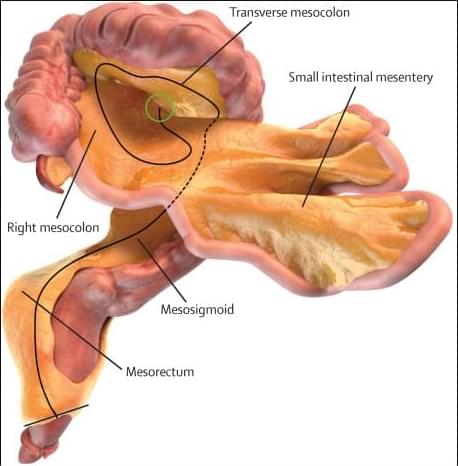We thought we knew the human body — but a new organ has been officially discovered.
In a groundbreaking discovery, researchers have officially classified the mesentery—a structure in the digestive system—as a distinct human organ.
Previously thought to be a fragmented and insignificant part of the abdominal cavity, new research reveals that the mesentery is actually a continuous structure that plays a crucial role in holding the intestines in place.
This reclassification, led by J Calvin Coffey from the University Hospital Limerick in Ireland, has been recognized in medical textbooks like Gray’s Anatomy and is now being taught to medical students. While its precise function remains unclear, studying this newly recognized organ could lead to breakthroughs in understanding and treating abdominal and digestive diseases.
The mesentery’s discovery marks the beginning of a new medical field—mesenteric science—which aims to uncover its role in human health. Researchers believe that a deeper understanding of its functions will help identify diseases linked to abnormal mesenteric activity. This revelation reminds us that, despite advances in science, there is still much to learn about our own bodies. With further research, the mesentery could hold key insights into improving gastrointestinal health and developing innovative treatments for abdominal disorders.
Learn more.
Systematic study of the mesentery is now possible because of clarification of its structure. Although this area of science is in an early phase, important advances have already been made and opportunities uncovered. For example, distinctive anatomical and functional features have been revealed that justify designation of the mesentery as an organ. Accordingly, the mesentery should be subjected to the same investigatory focus that is applied to other organs and systems. In this Review, we summarise the findings of scientific investigations of the mesentery so far and explore its role in human disease.
